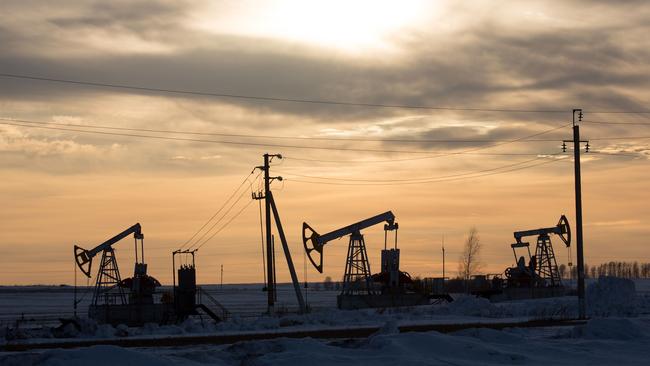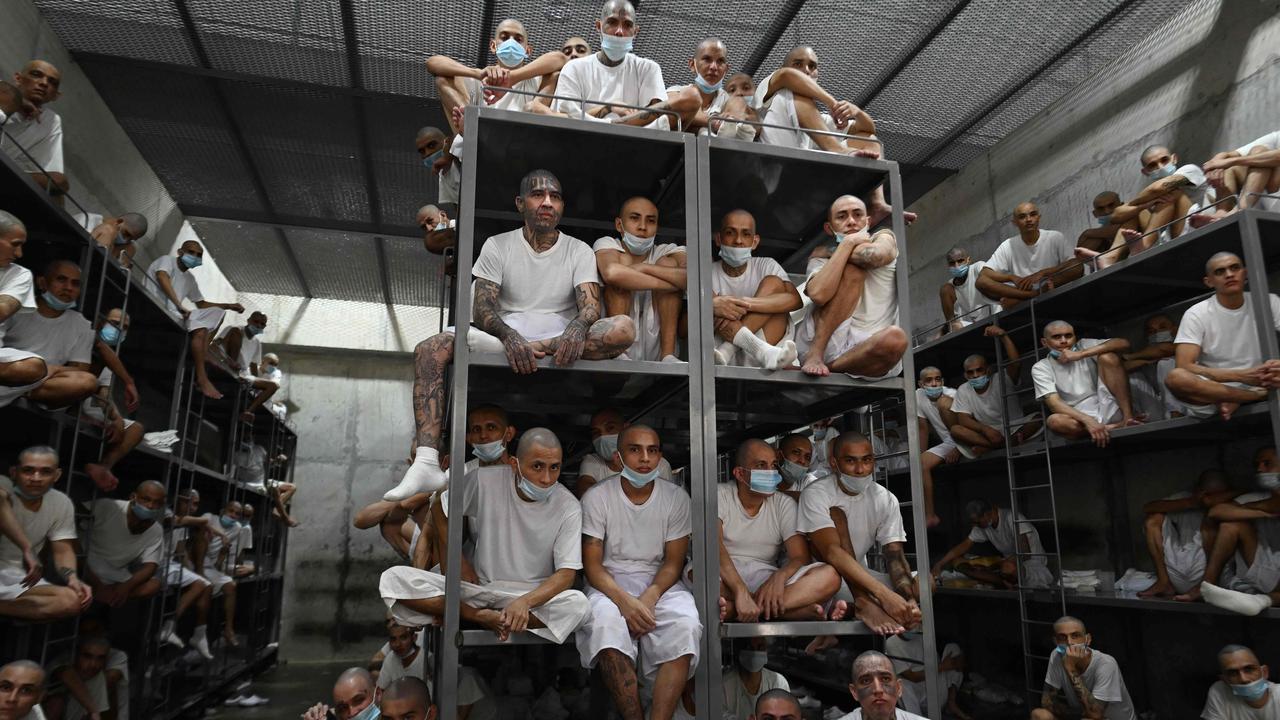Chevron CEO sees Russian oil output falling after exit of western firms
Russia still has buyers for its oil, but will face difficulty overcoming loss of western technology and capital, Mike Wirth says.

Russia is still finding a home for much of its oil despite expanding sanctions, but its production likely will diminish following the departure of western oil companies, Chevron chief executive Mike Wirth said.
In a meeting with Wall Street Journal reporters and editors this week, Mr Wirth noted that many countries continued to buy crude from Russia, one of the world’s top oil producers along with the US and Saudi Arabia.
But he said that it would be difficult for Russia to overcome the loss of western technology and capital, noting that other once-large oil producers have seen output fall after sanctions and the pullout of international oil companies.
“If you look at Iran and Venezuela, two other examples of large producers that have come under sanctions and have been pretty well cut off from the same kinds of investments and technology, their productive capacity degrades over time,” Mr Wirth said.
After decades of carving out footholds in Russia’s oil business, BP, Shell and Exxon Mobil said they would exit their operations in the country after Russia’s invasion of Ukraine began in late February. A few weeks later, oilfield services giants Halliburton, Baker Hughes and Schlumberger, which provide equipment and workers needed to extract oil, all said they would suspend new investments in Russia.
Chevron didn’t have any sizeable operations in Russia and was the least affected major oil company.

The European Union is planning to move forward with a partial embargo of Russian oil, and many western refiners have stopped buying supplies from Russia. Even so, Mr Wirth said Russian energy products are still finding willing buyers around the world at discounted prices, and so oil-market participants for now are responding to the prospect of reduced supply, rather than a large drop in oil production. Russian oil is still flowing as some shippers and refiners hide its origins.
The Organisation of the Petroleum Exporting Countries and other oil producers aligned with it this week agreed to an increase in oil production later this summer that was larger than anticipated, which could lead Saudi Arabia to boost output.
President Biden had earlier called for OPEC to increase production in response to rising energy prices, but the group had rebuffed his requests. The new commitments were seen this week as a move that could pave the way for Mr Biden to visit Saudi Arabia later this month, as the US and the kingdom seek to reset what has recently been a strained relationship.
Mr Wirth said if Mr Biden wanted to see global oil supplies rise, Saudi Arabia was among the very few producers with spare capacity to bring more crude to market quickly.
“This is the role Saudi has historically played,” Mr Wirth said. “In the context of the broader relationship and whatever discussions may be ongoing, if that can lead to more supply into the market, that’s a positive outcome for world energy markets.” Mr Wirth, who has been Chevron’s CEO since 2018, said while investors are still interested in the San Ramon, Calif.-based oil major’s strategy to reduce carbon emissions from its operations, the thrust of the company’s discussions with some of its largest shareholders has recently shifted to how the industry is ensuring the world has enough energy.
“We can’t just chase only low-carbon energy when that’s the popular thing and now when fundamentals are good in our traditional business, we can’t just set that aside and say we’re just going to drill, drill, drill,” he said.
Chevron, he said, is working to find a balance between those two priorities while returning cash to shareholders following several years in which the US oil industry lagged behind the broader market in returns. Chevron in April said that it made $US6.3 billion in profit during the first quarter, its highest in almost a decade, and that it was buying back shares at the upper end of a $US5 billion-to-$US10 billion range set for this year.
“We’re back now into better times and we need to return cash to the people who own the company,” he said.
The Wall Street Journal


